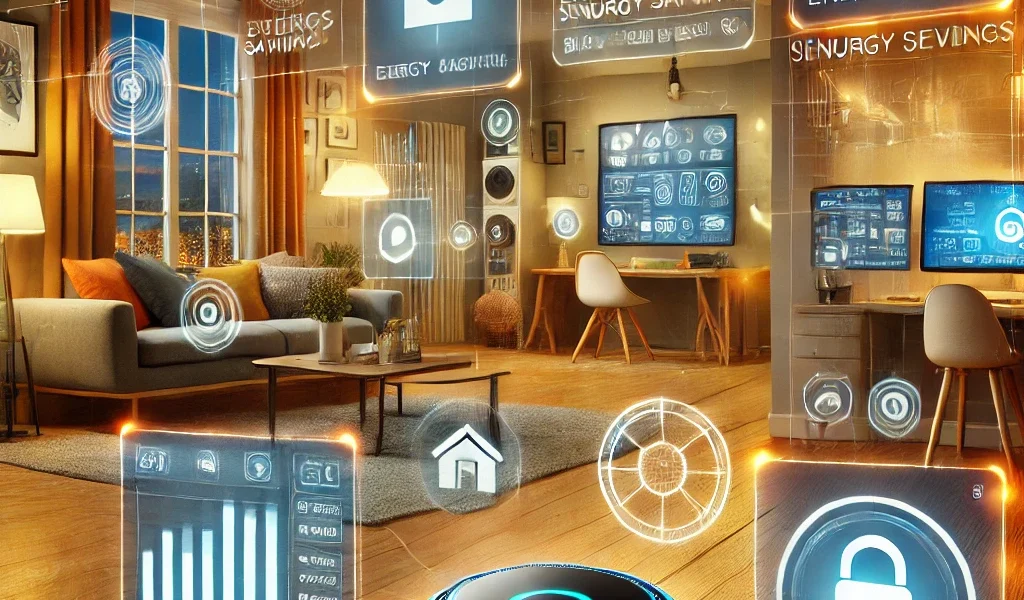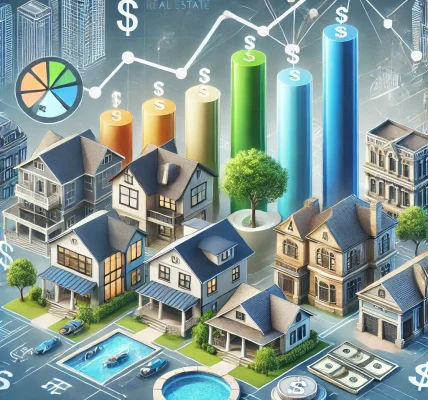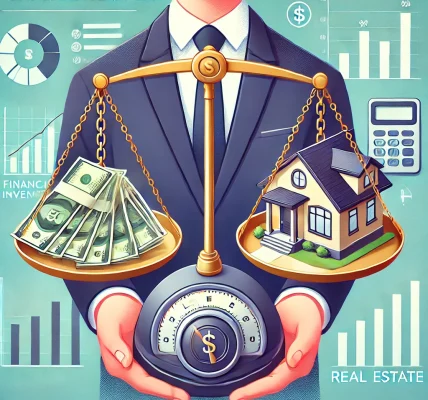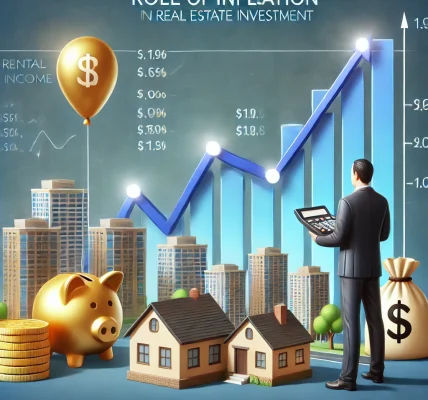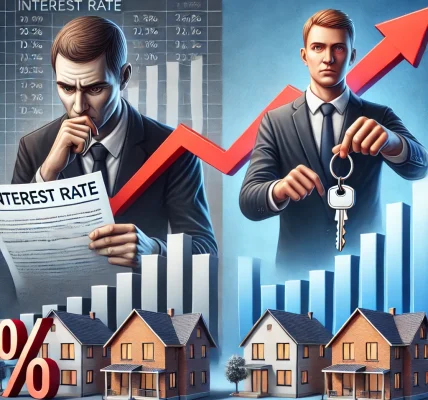Introduction
Technology is transforming the way we live, and real estate is no exception. Smart homes, equipped with internet-connected devices, are becoming a major selling point in the housing market. From energy-efficient lighting to security systems and AI-powered assistants, smart home technology is increasing property values and enhancing Return on Investment (ROI) for homeowners and investors alike.
In this guide, we’ll explore how smart home technology influences real estate value, the best upgrades for maximizing ROI, and what buyers and investors should consider when entering the smart home market.
What is a Smart Home?
A smart home is a residence that integrates internet-connected devices to control and automate systems such as lighting, heating, security, and entertainment. These technologies enhance convenience, efficiency, and security, making homes more appealing to modern buyers.
Common Smart Home Features
- Smart Security Systems – Includes cameras, doorbell cameras, and motion sensors for enhanced home safety.
- Automated Lighting – LED lights controlled via apps or voice assistants like Alexa and Google Assistant.
- Smart Thermostats – Devices like Nest or Ecobee that optimize energy usage based on occupancy.
- Voice-Controlled Assistants – Amazon Echo, Google Home, or Apple HomePod for seamless control.
- Smart Locks – Keyless entry systems with remote access for improved security.
- Connected Appliances – Refrigerators, ovens, and washing machines that notify users about maintenance and usage efficiency.
- Home Entertainment Systems – Smart TVs and speakers that integrate with AI assistants.
How Smart Homes Increase Real Estate Value
1. Higher Market Demand
With buyers looking for convenience, smart home features are a major attraction. According to real estate studies, properties with smart technology can sell up to 5% more than comparable homes without it.
2. Energy Efficiency Savings
Smart thermostats, LED lighting, and solar integration reduce energy consumption, making homes more cost-effective to maintain. Energy savings can lead to higher property valuations as buyers see long-term financial benefits.
3. Improved Security Enhances Perceived Value
Homes with smart security systems are often viewed as safer, making them more appealing to families and high-end buyers. This perceived security can increase property desirability.
4. Future-Proofing Homes
As technology advances, traditional homes may become outdated. Smart home-ready properties are future-proof, ensuring long-term value appreciation.
5. Competitive Edge in Real Estate Listings
When marketing a property, smart home features provide an advantage in listings. Properties with automation and modern tech are more likely to attract interest and sell faster.
Maximizing ROI with Smart Home Upgrades
Investing in the right smart home features can boost ROI when selling or renting a property. Here are the most cost-effective upgrades:
1. Smart Thermostats (ROI: 10-12%)
Devices like Nest or Ecobee help save energy and reduce electricity bills. Many buyers prioritize energy-efficient homes, making this a top-selling feature.
2. Smart Security Systems (ROI: 8-10%)
Doorbell cameras (Ring, Arlo) and smart locks increase safety, which is a key factor for homebuyers. Properties with enhanced security often sell faster.
3. Automated Lighting (ROI: 7-9%)
Energy-efficient lighting with remote access or motion sensors improves home ambiance and energy savings, appealing to modern buyers.
4. Smart Irrigation Systems (ROI: 5-8%)
Automated sprinklers optimize water usage, reducing utility costs. This is particularly valuable in drought-prone regions.
5. Smart Home Hubs (ROI: 5-7%)
A centralized system that integrates multiple smart devices increases convenience and home connectivity.
6. Solar Panels & Battery Storage (ROI: 15-20%)
Though expensive, solar energy solutions provide long-term savings and significantly enhance property value.
Smart Homes and Rental Property Investments
Higher Rental Income Potential
Rental properties equipped with smart features often command higher rents due to increased convenience and security.
Lower Vacancy Rates
Smart home-equipped rentals attract tenants faster and increase occupancy rates, ensuring consistent rental income.
Reduced Maintenance Costs
Connected appliances notify homeowners of maintenance needs, reducing costly emergency repairs.
Challenges & Considerations
1. Privacy Concerns
Buyers and renters may worry about data security and privacy breaches from smart home devices.
2. Upfront Costs
High-tech upgrades require an initial investment, though they often pay off in the long run.
3. Compatibility Issues
Not all smart devices integrate seamlessly, making it essential to choose systems that are compatible with each other.
4. Rapid Technological Advancements
As smart home tech evolves, some systems may become outdated quickly. Regular updates or replacements may be necessary.
Conclusion
Smart home technology is no longer just a luxury—it’s a necessity in modern real estate. Whether you’re a homeowner looking to increase property value, an investor seeking higher ROI, or a renter searching for a tech-enhanced living space, smart home upgrades offer a win-win solution.
By strategically investing in the right smart features, real estate owners can enhance property appeal, improve security, and maximize long-term returns. As technology continues to advance, smart homes will only become more valuable in the real estate market.
